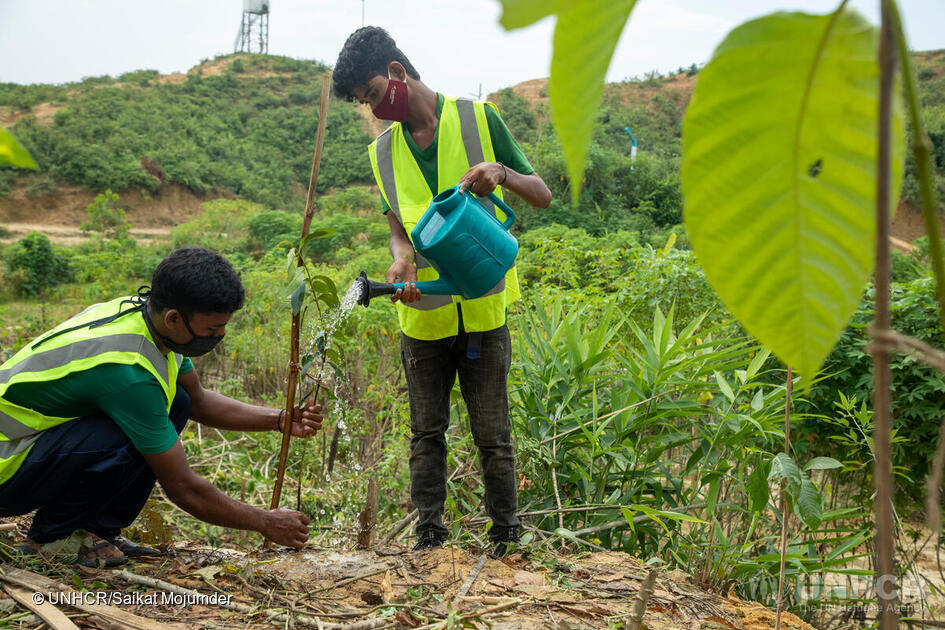Swedish support allows UNHCR to prepare for and respond to the monsoon season that exacerbates the situation in the world’s largest refugee camp in Bangladesh.
© UNHCR/Amos Halder
It is now five years since more than 700,000 children, women and men from the persecuted and stateless Rohingya minority fled Myanmar to seek safety in Bangladesh, already hosting thousands of Rohingya refugees. They live in the world’s largest refugee camp in Cox’s Bazar, home to almost one million Rohingya refugees, over half of which are children.
Here, the conditions are highly overcrowded, the majority are dependent on humanitarian aid – and in addition, the yearly monsoon season, starting in June, has devastating effects on the refugee population. Last year, more than 2,500 shelters were destroyed by record flooding, and 12,000 individuals were impacted.
With support from Sweden, UNHCR works to mitigate the impact of the monsoon and make sure that refugees in Bangladesh are prepared to deal with the floods and landslides that jeopardize their already difficult situation.

Multiple water reservoirs and ponds are scattered across the camp, and with the heavy downpours the water levels can rise dramatically. Ahead of the monsoon season this year, UNHCR trained Rohingya refugees as first responders to safely conduct water rescues and evacuations.

Over 70,000 refugee households have received tie-down kits for the monsoon preparedness. The kits consist of rope and wire that are used to reinforce their shelters to be better protected against the heavy rainfalls.

UNHCR’s experts in Cox’s Bazar have led the work in preparing the camp and the thousands of shelters for the monsoon season. This includes building bamboo bridges, drains and stabilizing slopes, so that shelters do not risk being washed away in the mudslides.

UNHCR has trained hundreds of volunteers from the refugee community to raise awareness about the monsoon and spread information about preparedness by going shelter to shelter. They have also been trained in how to repair and reinforce shelters to better withstand the torrential downpours and wind.

When the monsoon hit in June, dozens of refugee households were temporarily sheltered in previously prepared communal facilities in the camps to ensure that they remained safe during the rainfall.

Together with partners, UNHCR has supported Rohingya refugees in planting fast-growing trees across the camp to stabilize hillsides and hereby reduce the risk of flooding and landslides.
Sweden is a longstanding partner to UNHCR and a top donor of unearmarked funding, allowing UNHCR to respond to and prepare for emergencies. Thus far in 2022, Sweden has provided UNHCR with USD 143.4 million, of which USD 99.3 million is unearmarked, and USD 2 million is targeting the Bangladesh operation.
Share on Facebook Share on Twitter